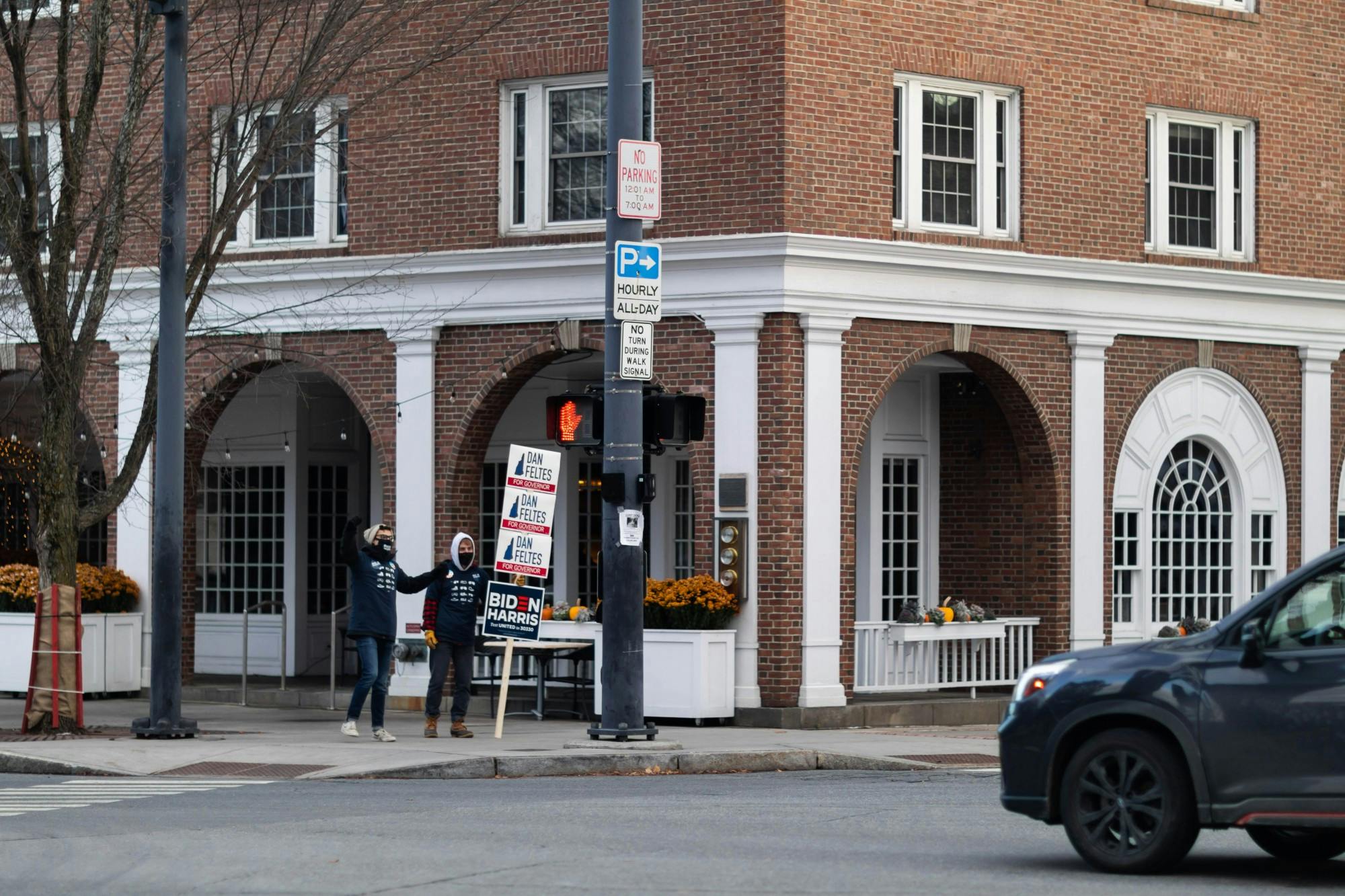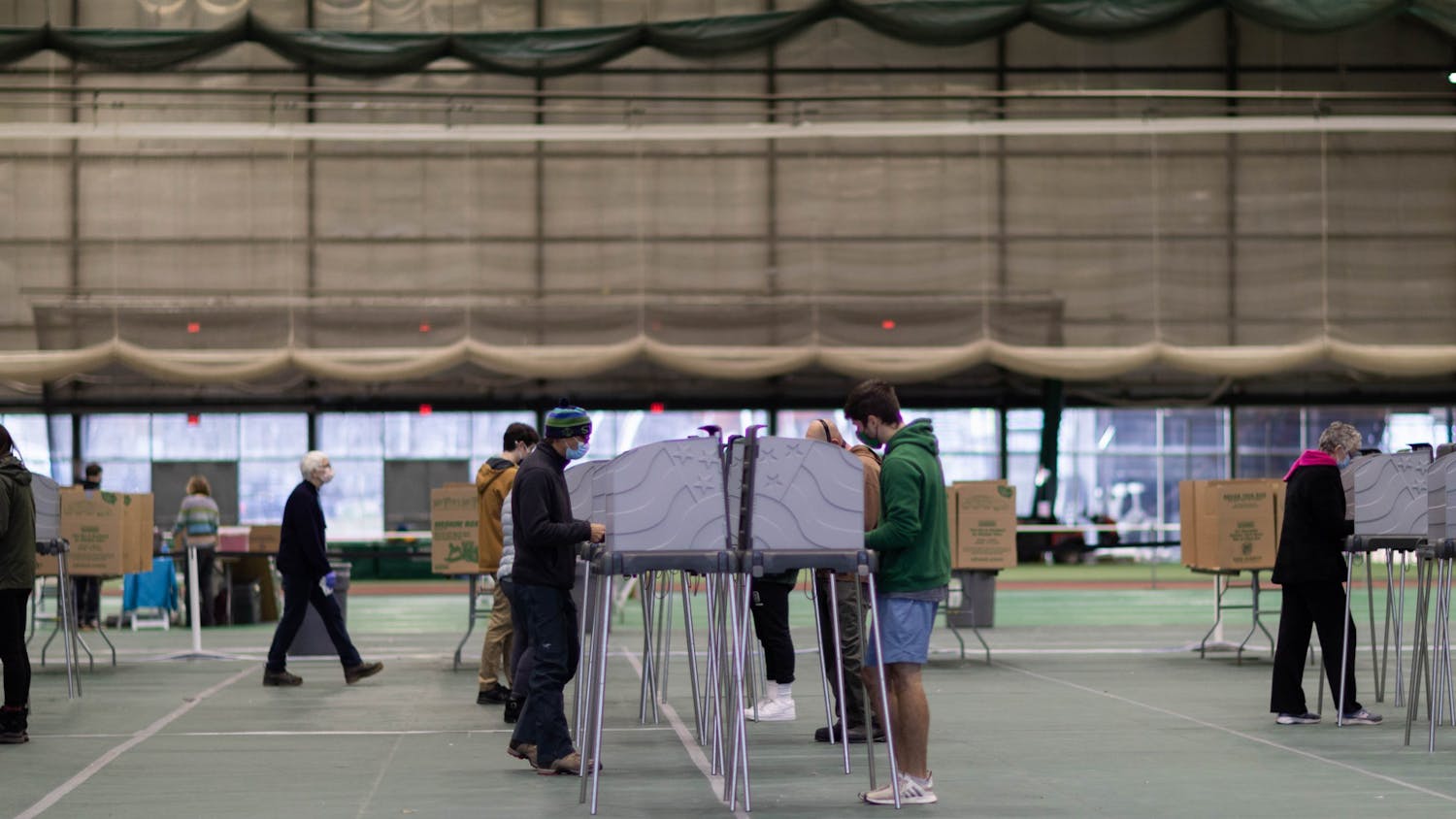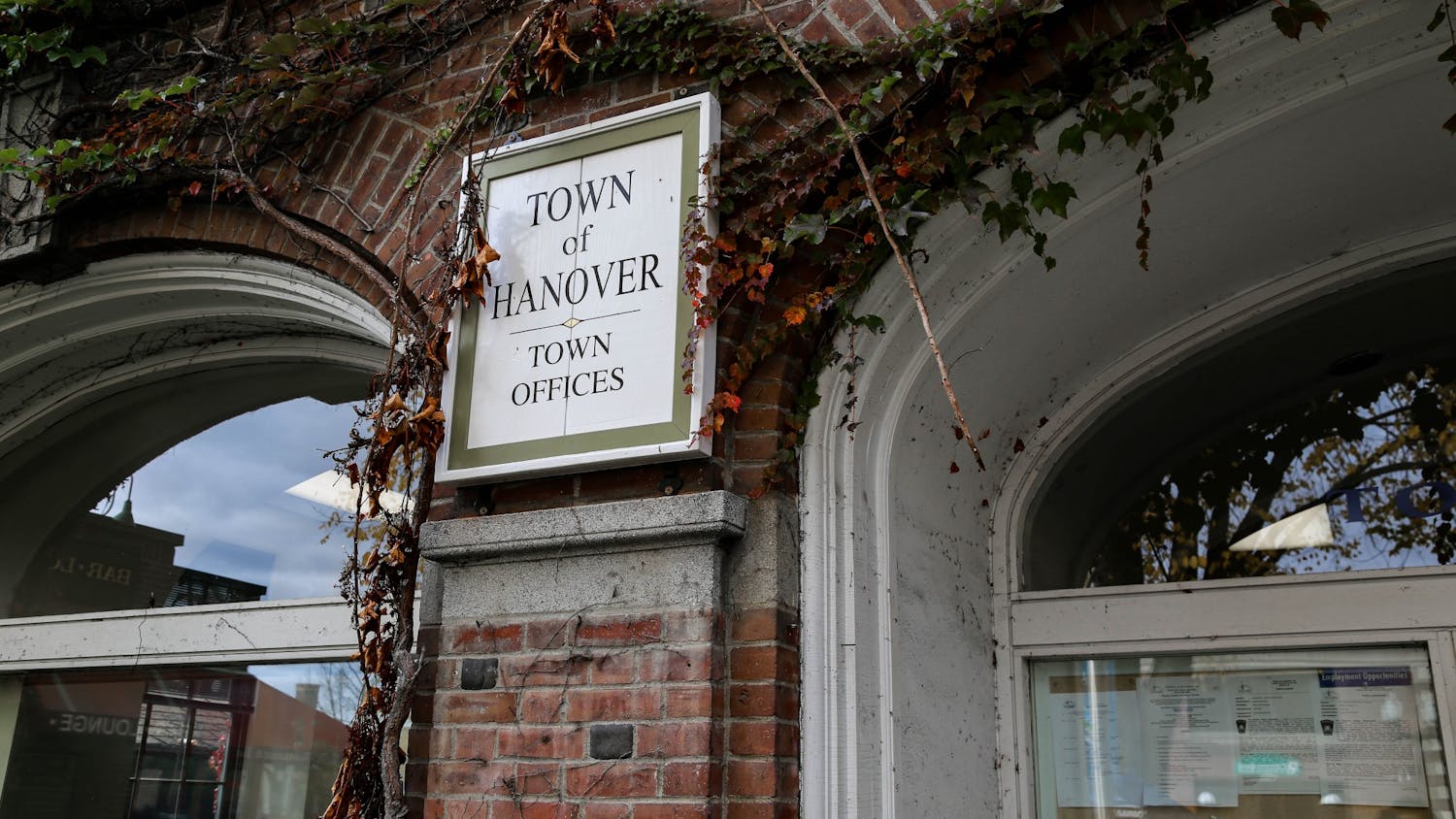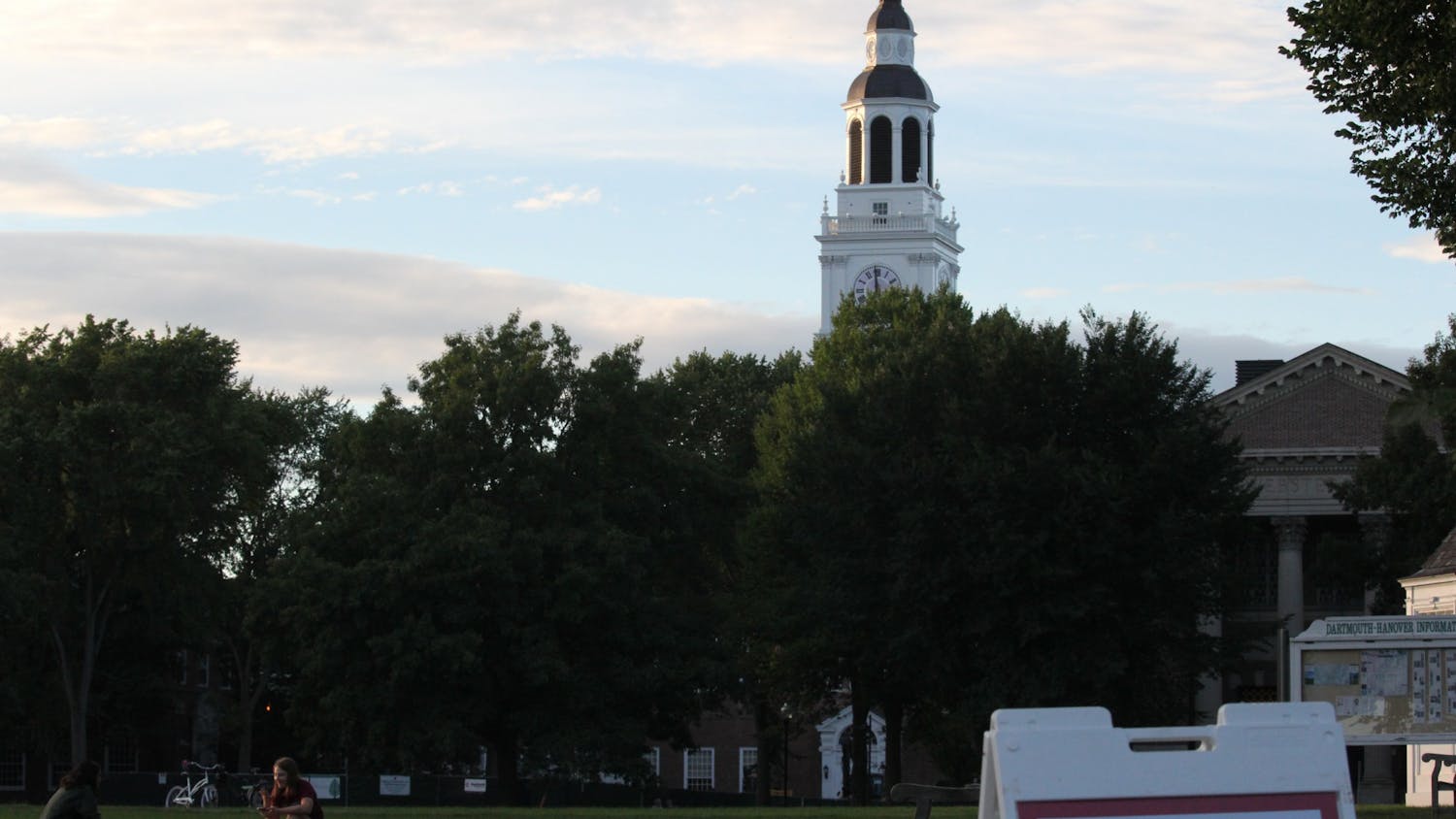As ballots continue to be counted in several states and the outcome of the 2020 election hangs in the balance, students at Dartmouth have anxiously awaited results.
As of Nov. 6 at 1:00 a.m, Joe Biden has amassed 253 electoral votes, while Donald Trump lays claim to 214, according to projections reported by the New York Times. The states of Alaska, Arizona, Georgia, Nevada, North Carolina and Pennsylvania have yet to be called.
New Hampshire — historically a swing state — voted for Biden in this year’s election, though some counties voted for Trump by a slim margin. In Hanover, Biden won 86.6% of the vote, compared to Trump’s 11.8%. A poll conducted by The Dartmouth showed 81.8% of student respondents supported Biden and 13% supported Trump, though the majority opted to vote by absentee ballot in their home state.
Democrats express hope for Biden victory
As election returns poured in on Nov. 3, students offered their reactions to the results and expressed anxiety amid the lack of a clear winner. Many Dartmouth students who supported Biden voiced particular concern over social and political issues they contend have worsened under the Trump administration.
Jason Acosta Espinosa ’24 and Angel Aguilar ’22 both cited immigration as a primary reason they voted for Biden. Aguilar, who volunteered as a poll worker in Florida, said his focus on immigration comes from a moral objection to detention center conditions and the economic benefits of migrant labor.
“Detention centers have [been] reported tying up the fallopian tubes of migrant women that were detained, and I think people aren’t talking about that enough,” Aguilar said. “For me, that’s concentration camp-level behavior, where we as a country have … detained humans that are not necessarily doing anything wrong aside from being here.”
Acosta Espinosa ’24 recounted his fear as he perceived the vote tilting toward Trump on election night, explaining that his parents are under temporary protected status and might face deportation if Trump is reelected.
“When I saw that [Trump] was winning, I actually ended up freaking out a lot and started making a contingency plan about what to do with my sister, because she’s a junior in high school, if my parents get deported,” he said. “There’s no way I’m letting my sister go back with them, so I was texting immigration lawyers I know, trying to figure out how many internships I can realistically do right now to get enough money to pay for rent.”
Although international students cannot vote in the U.S., many are closely watching election returns, as their ability to continue study at the College may be impacted by the election’s outcome.
Guilherme Marinho ’22, an international student from Brazil, said he is concerned that a Trump reelection would impact his studies and work opportunities in the U.S. This past summer, a federal guideline that would prohibit international students taking online-only classes from remaining in the U.S. triggered panic throughout the international student community before it was reversed.
With fully online classes, first-year international students at Dartmouth have not been able to enter the U.S., and a proposed rule that would limit the duration of visa status for international students will likely impact their entry to the country.
“I think the [Trump] administration has been heavy-handed and just illogical in their treatment of international students,” Marinho said. “So I fear this is just going to continue [if he is reelected].”
Marinho said the prospect of waiting an unknown period of time for the election outcome that could affect his studies in the U.S. is both “thrilling” and stressful.
Nicholas Zane ’24, who voted for Biden but characterized himself as a moderate, said while he supported Biden as “the lesser of the two evils,” he thinks the fear that many people see in Trump’s reelection is “overexaggerated,” as they tend to focus on “Trump’s personality and the small things he does” rather than his policy decisions.
Dartmouth independents and Republicans weigh in
Despite Biden’s popularity with students, not all Dartmouth students voted blue — in fact, many students have kept their support for Trump private in fear of “persecution,” according to Mackenzie Stumpf ’21.
Stumpf — who wrote in an email to The Dartmouth that she did not feel comfortable sharing whom she had voted for but said she is a registered independent — wrote that she is unsurprised that conservatives at the College tend to be reticent.
“It is incredibly difficult to have opinions that are different from the seeming majority around you,” she wrote. “I’m also not very shocked that there aren’t many vocal conservatives. An honest and open discussion without name-calling and ad hominem attacks would be ideal for the sake of recovering this country.”
Former Democratic candidate for N.H. state legislature Victoria Xiao ’22, who suspended her campaign before the election but remained on the ballot during New Hampshire’s state primary, said she had voted for Trump in this year’s election.
The primary reason she opted to vote for Trump over Biden, she explained, was the “radicalization of the extreme, Marxist left.”
“I know a lot of people say, ‘Real socialists actually don’t like Democrats or Biden,’ and of course I’m not saying Biden himself is a radical, but I don’t trust him to stand up to the radical left,” she said. “I think [Marxism] is a real threat on the left that has corrupted a lot of young people, including people [at Dartmouth] … I think there’s a deep sense of hatred toward America where people kneel during the anthem, and burn the flag and Bible and people attack cops and people excuse them for attacking cops.”
She described violence during Black Lives Matter protests — a topic she discussed in a guest column for The Dartmouth titled “Violence is not Social Justice” — as worrisome.
Regardless of the outcome, Stumpf emphasized that there is and will likely continue to be profound divisions in the U.S.
“I think that anyone who says, ‘I refuse to interact with those who have different political opinions than me,’ is a huge issue,” she wrote. “Regardless of who wins, we are in a political stalemate. … Voting Trump out and Biden in is not the solution to the issue of divisiveness within the people themselves.”




